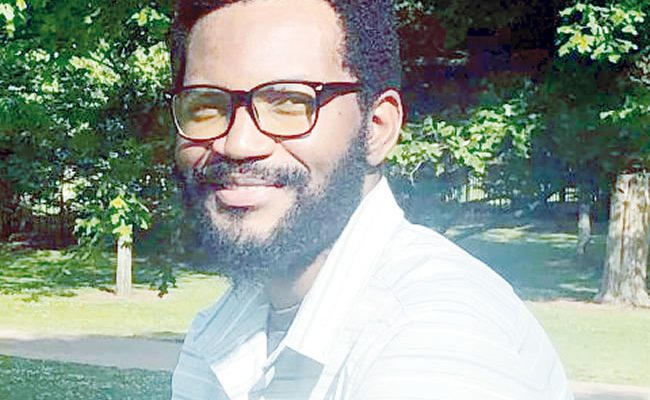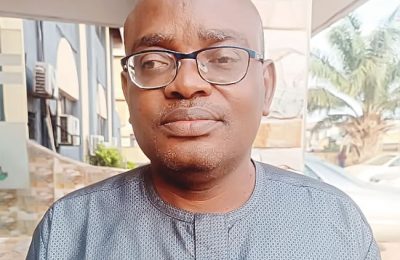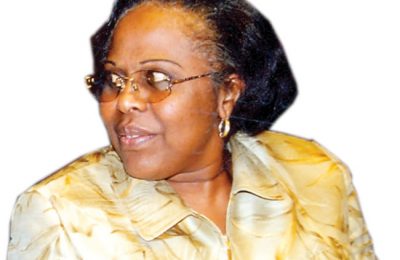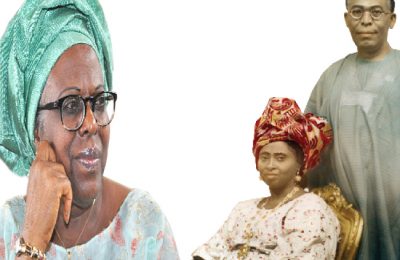In this piece, Dr. Naza Okoli who received his PhD in English from the University of Mississippi, United States, and is currently Assistant Professor of English at Eastern Kentucky University, reflects on his three-year tenure as Senior Reporter at the Nigerian Tribune.
My first visit to Ibadan was in early 2014, and it was for a job interview at the Nigerian Tribune. I had recently completed my national youth service and enrolled in a master’s program at my alma mater, the University of Lagos. On this occasion, I was accompanied by Newton, one of my closest friends.
Several positions had been advertised by the Tribune, and we had both applied. This written examination was the first stage in the recruitment process, and we had both been invited to take it. Ibadan struck me as different—a city deeply aware of its own history yet defined in part by its proximity to Lagos. It felt distinct, almost like a counterpart to Lagos, but with a character all its own.

Residents spoke of Lagos with a mix of fondness and exasperation, like a father musing about his wayward child. It felt like stepping into a place where the past held steady, even as the present pressed on. Tribune House, the newspaper’s headquarters, would exemplify this character. In an industry heavily centered on Lagos, the company’s dedication to operating from Ibadan while maintaining an effective Lagos bureau is remarkable.
I joined the Tribune as Senior Reporter in April 2014, working out of the Lagos Bureau. In this role, I covered education for the daily publication, and contributed features for the Saturday paper. In a city that is perpetually buzzing, the flexible nature of a journalist’s work allowed me to establish a comfortable rhythm that I treasured at the time. It meant that I could balance my schedule between working and studying full time, in my first year.
On days when I worked from home, I would occasionally take leisurely walks to buy food or snacks, smiling to myself as neighbors wondered what job I did and how I got away with so much free time. In Lagos, time is privilege. Yet, I looked forward to our weekly editorial meetings, Monday evenings. In the expansive conference hall at Motorways, we would chart the course for the upcoming week. Over open laptops, drinks, and snacks, we rehearsed our aspirations and anxieties. Thanks in part to our charismatic bureau chief, Mr. Lanre Adewole, those meetings often felt both therapeutic and critical, much like a homecoming and a revival combined.
Mr. Adewole loved my work, especially my Saturday features, and he was lavish with his praise. Yet, as a staunch advocate for the daily beats—the real essence of journalism—he frequently encouraged us to be more strategic in our daily reporting. And whenever I attempted to explain away my shortcomings by citing my involvement in a feature story project, he would remind me that there were more important endeavors than my “Ojuelegba stories.” And I had a fascination for the hustle and bustle of Lagos’ streets—yes, in Ojuelegba and elsewhere. On buses and in markets, I watched and listened as the drama of everyday life played out before me.

I absorbed much and was thankful for the outlet that Saturday Tribune offered, this opportunity to elevate the ordinary to a subject worthy of literary exploration. In many ways, I continue to carry this instinct with me to this day. My work as a researcher is rooted in the belief that there is a wealth of undiscovered stories and ideas not accounted for in mainstream culture, but rather hidden within the underground.
My three-year tenure at the Tribune is also a testament to the mentorship—and friendship—I received from Dr. Lasisi Olagunju, the unassuming yet influential Editor of Saturday Tribune. Each week, we brainstormed story ideas, over phone or via text messages.
Occasionally, if he was at work, he would invite others to join our calls, proudly introducing me to the team, like a father would. When I made the decision to apply to graduate programs in the United States, it felt natural and effortless to discuss my plans with him. Throughout every stage—from graduate school to my academic career—we have maintained a close connection. There is a deeper significance to all this.
During my undergraduate years at the University of Lagos, my friends and I, a diverse and progressive group, frequently discussed the issue of national identity. Our brilliant idea sought to de-emphasize ethnic identities in order to fully celebrate our Nigerianness. We would ultimately discover that embracing such an ideology in an environment that does not recognize its validity—or our right to even possess one—is foolhardy. It is also a needlessly complicated way of addressing the problem of national unity.
When confronted with a similar challenge, Langston Hughes derided it as “the desire to pour racial individuality into the mold of American standardization, and to be as little Negro and as much American as possible.” This sense of culture as a blend of diversity and unity is one that the Tribune embodies, a concept that I have learned to apply in my approach to the Nigerian project.
During my visits to Ibadan, and in the hallways of our Lagos bureau, we reaffirmed our commitment to the cause of nation-building. In those small gestures of care—from editors to reporters, and from reporters to interns—we acknowledged our collective role in this endeavor.
In moments of friendship and nuanced conversations, we stretched the bounds of what was possible and attainable. While these gestures may seem exaggerated at times, they enact a sense of optimism in an environment where hope is in short supply. The Tribune offered us all such a space, and there is need for more to emerge and thrive. Happy 75th anniversary!
READ ALSO: Police reject N174m bribe, arrest suspected internet fraudster in Lagos







